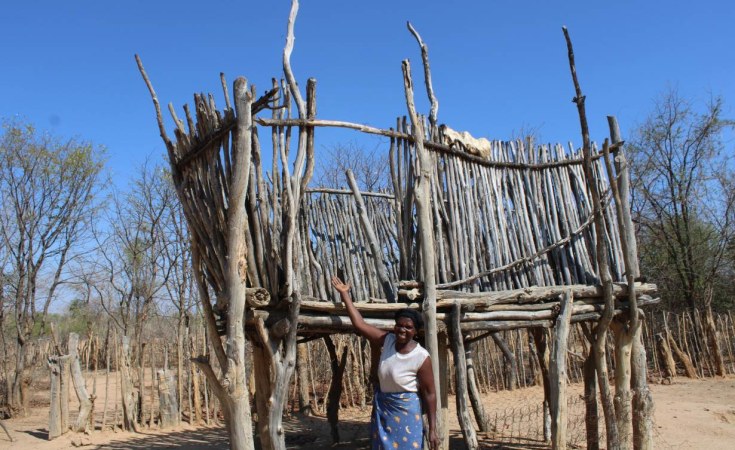IN the face of the current challenges caused by the El Niño weather, Government is pushing for the adoption of new agricultural technologies and research projects that proffer solutions on drought mitigation and avoidance.
Speaking at a recent Annual Partners' Day hosted by the International Maize and Wheat Improvement Centre (CIMMYT), Lands, Agriculture, Fisheries, Water and Rural Development permanent secretary Professor Dr Obert Jiri said there was need for resources and technologies that can help through the drought and the ever changing climatic conditions.
Said Prof Jiri: "This year has been marked with challenges like the El Niño, which is devastating and has affected farmers countrywide and we continue to grapple with the harsh realities of climatic change. In response the Government remains committed to safeguard farmers through strategic partnerships, cutting edge research and advocacy."
He said the need to climate-proof agriculture technologies such as Pfumvudza at household level and irrigation at national level was important while making sure that there is irrigation at each level of agriculture to help fight droughts and increase production.
"Backed by new technologies and varieties of new crops to cope with the ever changing climate and dietary needs, we should be able to ensure food security at each level," he said.
He added that there was need to make sure technologies already developed and those being developed reached smallholder farmers and by leveraging partnerships with organisations such as CIMMYT, enhanced productivity, resilience and sustainability was assured within the agriculture sector.
Prof Jiri commended CIMMYT's efforts to promote sustainable and climate-smart technologies such as conservation agriculture and the Pfumvudza initiative and developing drought-tolerant crop varieties and hybrids resistant to pests like fall armyworm and nutrient-rich hybrids containing vitamins like A and O.
He highlighted the importance of building farmers' resilience and welcomed CIMMYT's expansion of dryland crops including traditional grains and legumes, as a crucial step in meeting the evolving and pressing needs of the agriculture sector for increased productivity.
"Appropriate scale mechanisation has also become a significant focus for CIMMYT to promote sustainable agriculture while increasing agricultural productivity, most notably by developing village-based mechanisation service providers in some parts of Masvingo and Mashonaland Central and providing threshing, shelling, reaping and transport services to hundreds of smallholder farmers," explained Prof Jiri.
He challenged CIMMYT to add irrigation to the list to ensure tillage is done well and production is climate-proofed.
CIMMYT Sustainable Agrifood Systems director Dr Sieg Snapp emphasised the urgent need to embrace technology to combat the devastating effects of drought.
She added that in the midst of one of the worst droughts witnessed, farmers were facing difficult decisions regarding their livelihoods and livestock. Driven by the goal of diversification and conservation agriculture, CIMMYT aims to make a difference by promoting sustainable farming practices that conserve soil and water resources.
She explained that with extreme weather conditions becoming the new normal, CIMMYT had developed a comprehensive strategy focusing on nutrition, climate change, gender equality and mechanisation.
Partnerships with seed companies and mechanisation providers have become crucial in delivering these new technologies to farmers.
Dr Sieg, however, stressed that mechanisation played a vital role in improving production, reducing labour-intensive practices like hand-hoeing and creating livelihood opportunities during years of drought.
The implementation of appropriate-scale mechanisation including the village-based mechanisation service provider model has significantly increased agricultural productivity for hundreds of smallholder farmers.


